As a website owner, your online presence is crucial to your business success. At SecureWebsite.io, we understand that navigating website security can feel overwhelming, especially when you’re focused on running your business. This guide will walk you through essential security measures that every website owner needs to know, without the confusing technical jargon.
Why Your Website Might Be at Risk (Even If You Think It’s Too Small to Target)
Many small business owners believe their websites aren’t attractive targets for hackers. However, automated attacks don’t discriminate by size – they scan the internet for any vulnerable website. In fact, small business websites are often targeted precisely because they typically have fewer security measures in place.
The Real Costs of a Security Breach
Before diving into protection measures, let’s understand what’s at stake:
- Lost customer trust and damaged reputation
- Potential legal liability if customer data is exposed
- Recovery costs and lost business during downtime
- Possible Google blacklisting of your site
- Ransomware payments and data recovery expenses
Essential Security Measures Every Website Needs
1. Secure Your Login Pages
Your login page is like your website’s front door. Make it strong:
- Use strong passwords (at least 12 characters, mix of letters, numbers, and symbols)
- Enable two-factor authentication for all admin accounts
- Limit login attempts to prevent brute force attacks
- Use secure password reset procedures
2. Keep Everything Updated
Think of updates like vaccines for your website:
- Update your content management system (WordPress, Shopify, etc.) immediately when new versions release
- Keep all plugins and themes updated
- Remove any plugins or themes you’re not actively using
- Set up automatic updates when possible
3. Use HTTPS Everywhere
HTTPS isn’t just for ecommerce anymore:
- Install an SSL certificate on your website
- Force all traffic to use HTTPS
- Update all internal links to use HTTPS
- Check for mixed content warnings
4. Back Up Your Website Regularly
Think of backups as your safety net:
- Set up automatic daily backups
- Store backups in multiple locations
- Test your backup restoration process regularly
- Keep at least 30 days of backup history
5. Monitor Your Website
Stay alert to potential issues:
- Set up security scanning and monitoring
- Watch for unusual traffic patterns
- Monitor for unauthorized file changes
- Set up alerts for security issues
Common Security Threats and How to Stop Them
Contact Form Spam
- Use CAPTCHA on all forms
- Implement honeypot fields
- Limit form submission frequency
- Use email verification for registrations
Malicious File Uploads
- Restrict allowed file types
- Scan uploaded files for malware
- Limit file size uploads
- Store uploaded files outside the web root
Payment Security
- Use trusted payment processors
- Never store credit card details
- Keep payment forms on HTTPS pages
- Regularly scan for card skimmers
Warning Signs Your Website Might Be Compromised
Watch out for these red flags:
- Unexpected changes to your website content
- Slow website performance
- Strange files in your directories
- Unauthorized admin users
- Unusual outbound links
Quick Security Wins You Can Implement Today
- Change all admin passwords to strong, unique ones
- Enable two-factor authentication
- Update your CMS and all plugins
- Install a security plugin or service
- Set up automated backups
When to Call in the Professionals
While many security measures can be handled in-house, some situations require expert help:
- Setting up complex security configurations
- Recovering from a hack or breach
- Implementing custom security solutions
- Regular security audits and penetration testing
How SecureWebsite.io Can Help
We offer specialized security services for website owners:
- 24/7 website monitoring and protection
- Automated malware scanning and removal
- DDoS protection
- Regular security updates and patches
- Expert support when you need it
Free Security Assessment Tool
Visit SecureWebsite.io/scan to get a free security assessment of your website. Our tool will check for:
- Outdated software versions
- Missing security headers
- SSL/TLS configuration issues
- Common vulnerabilities
- Malware indicators
Conclusion
Website security doesn’t have to be complicated or expensive. By implementing these basic security measures and staying vigilant, you can protect your online business from most common threats. Remember, prevention is always cheaper than recovery.
Need help securing your website? Contact our team of security experts for a consultation. We speak your language and can help you understand exactly what your website needs to stay secure.
Published: January 16, 2025 | Author: SecureWebsite.io Security Team
PS: Download our free Website Security Checklist at SecureWebsite.io/checklist to make sure you haven’t missed any critical security steps.
